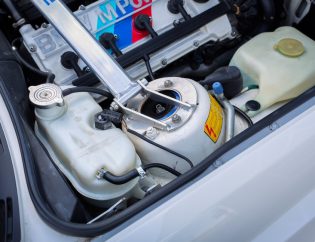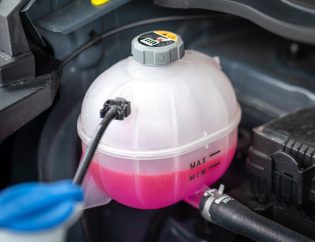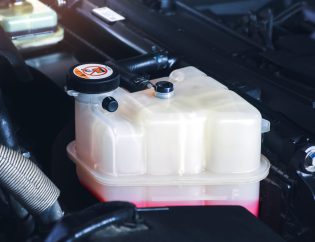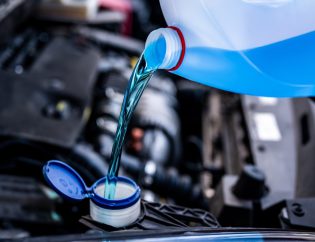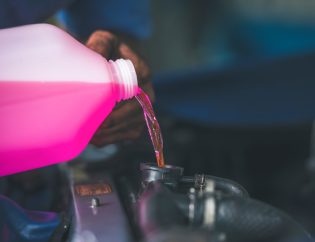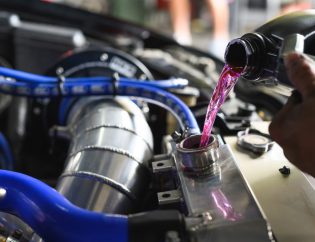
Contents
What is Engine Coolant?
A substance called coolant aids in keeping the engine of your car cool. It accomplishes this by pumping via the radiator, which recirculates the fluid after absorbing heat from the engine of the car and returning it to the engine block via a hose. This process continues until the coolant has absorbed all of your engine’s heat (at which point you need to refill your car with more).
When people refer to “coolant,” they generally mean what we call engine coolant–the liquid that circulates through our cars’ radiators and engines rather than an antifreeze solution or other type of fluid used in other systems like automatic transmissions or power steering pumps.
What is Antifreeze?
The ingredients of antifreeze are water and ethylene glycol. Because it has a lower freezing point than water, colorless ethylene glycol can prevent your engine from freezing in cold weather. Antifreeze also protects your engine from corrosion, rusting, and pitting while driving around in the summertime heat.
While antifreeze has many benefits for your car or truck, it’s important to note that this chemical isn’t toxic–but if you ingest too much of it through drinking or otherwise (for example, if your child accidentally drinks some), then there could be serious consequences for their health because ethylene glycol can cause kidney failure if consumed regularly over time.
Composition and Characteristics
A solution of water and antifreeze is called coolant.

Water’s freezing point is lowered by the chemical antifreeze. Several types of antifreeze are available, each with its unique properties and characteristics. The most common type of automotive antifreeze is ethylene-glycol (EG), which was introduced in 1954 and used for engine cooling systems.
Antifreeze can be more expensive than coolant because it contains additional ingredients that help keep your car from freezing up during cold weather conditions–the most important being corrosion inhibitors or “corrosion inhibitors.” These additives help prevent rust from forming inside your engine block or radiator core by preventing metal surfaces from coming into contact with each other during operation at low temperatures
Cooling Mechanisms
Liquids called coolants aid in keeping your engine cool. By moving through the engine, collecting heat, and removing it from delicate components like pistons and valves, they save the engine from overheating. Antifreeze and engine coolant are the two primary categories of coolants.
Engine coolants are mixtures of water and ethylene glycol (EG), which lowers their freezing point so they don’t solidify at low temperatures. Antifreeze also contains inhibitors that prevent corrosion in your cooling system and biocides to prevent microorganisms from growing inside it. Both types can be mixed with oil in an internal combustion engine (ICE) if there’s no room for another separate liquid reservoir inside the car–but this is not recommended because mixing oil with water can cause harmful acids to form over time!
Antifreeze Properties
Ethylene glycol, water, propylene glycol, or methanol are the ingredients of antifreeze.

It lowers the freezing point of your engine coolant, allowing it to stay liquid in cold conditions. This prevents your car from overheating when you’re driving in temperatures below freezing.
Antifreeze does not contain additives or corrosion inhibitors; it only acts as a coolant for engines with radiators and water pumps that keep them running at optimum temperatures under normal conditions.
Corrosion Prevention
The primary difference between engine coolant and antifreeze is their intended use. Engine coolant is designed to prevent corrosion, while antifreeze is used to prevent freezing.

Engine coolant should not be used in an automobile radiator, as it can damage its seals and gaskets. Similarly, antifreeze should not be used in an engine because it may cause metal parts inside your car’s motor (such as pistons) to corrode or rust over time due to its higher concentration of ethylene glycol than what’s found in typical automotive engines; this problem becomes more severe when combined with other environmental factors like dust or dirt that contain acids or salts which accelerate corrosion even further!
Application and Usage
Whether you have a vehicle, motorcycle, boat, or aircraft–or even if you’re looking for an antifreeze solution for your snowmobile–we have the right product for you!
We provide a large selection of engine coolants made to fit the requirements of various car models. We have what you need to maintain your vehicle operating properly, whether it be for motorcycles, ATVs (all-terrain vehicles), trucks, or passenger cars and heavy equipment like bulldozers and excavators.
Toxicity Levels
The toxicity level of engine coolant is low, while the toxicity level of antifreeze is high. While both products can be used to cool your car’s engine and protect it from rust and corrosion, they differ in chemical makeup. Engine coolant contains ethylene glycol (EG), which is toxic if ingested by humans or animals; antifreeze contains propylene glycol (PG).
Global Standards for Engine Coolant
In the 1960s, the Society of Automotive Engineers (SAE) established a global standard for engine coolant. ISO and other organizations later adopted this standard. The most common type of engine coolant is called “anticorrosion” because it prevents corrosion from forming on metal parts inside your vehicle’s engine.
Technological Advancements
Engine coolant is a mixture of water and ethylene glycol.

Antifreeze, on the other hand, is a mixture of water and propylene glycol. The main difference between these two substances is their boiling points: engine coolant has a higher boiling point than antifreeze. This means that if you’re using engine coolant instead of antifreeze, your engine will be able to withstand higher temperatures without overheating or getting damaged by corrosion. In addition to being safer for your car’s health overall (by keeping it cooler), this also means that you’ll save money on repairs because they won’t be as frequent if your car runs hotter than usual due to improper maintenance or malfunctioning parts–something which can happen more often when using regular antifreeze instead of proper automotive fluids such as those made specifically for this purpose!
Frequently Asked Questions
What Is Engine Coolant?
Engine coolant, often a mixture of water and antifreeze, is a fluid designed to absorb heat from the engine and dissipate it through the radiator.
How Does Antifreeze Differ from Coolant?
Antifreeze is a concentrated chemical (usually ethylene glycol or propylene glycol) that is added to water to create engine coolant. It lowers the freezing point and raises the boiling point of the mixture.
Can I Use Straight Antifreeze in My Cooling System?
No, it’s not recommended. Antifreeze should be mixed with water (usually in a 50/50 ratio) to create coolant, which optimizes heat transfer and corrosion protection.
Is It Necessary to Mix Antifreeze with Water?
Yes, mixing antifreeze with water enhances its heat-absorbing capabilities and helps prevent overheating and freezing of the engine.
Conclusion
In conclusion, it is important to note that the difference between engine coolant and antifreeze is in their composition and properties.
While both fluids have similar functions, they differ in cooling mechanisms and corrosion prevention capabilities. Furthermore, there are global standards that regulate the composition of coolants while ensuring they are safe for use by consumers worldwide. Learn more about which type of coolants to choose for your vehicle by getting in touch with us today.

